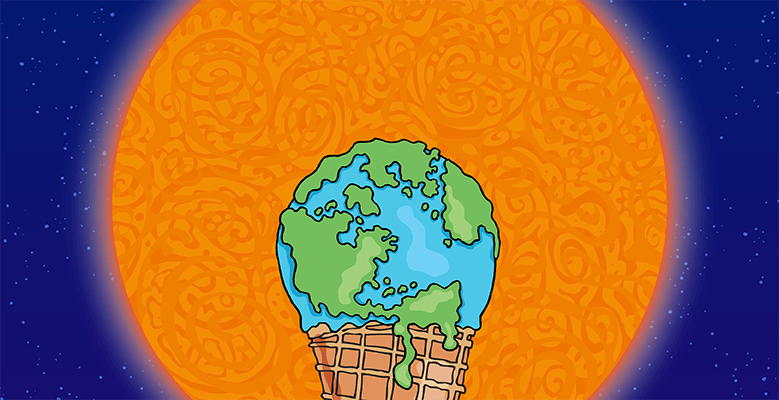
From rising seas to warming temperatures to wilder hurricanes and tornadoes, the impacts of climate change are only getting worse. On every continent, life as we know it is changing due to rising temperatures — and not for the better. And the most devastating part of climate change is the human impact. Because while it may impact everyone, it does not impact everyone equally. Vulnerable communities all over the world have seen their homes devastated, their livelihoods curtailed, and their stability threatened by climate change.
We have to act. These 10 extreme weather events are the direct result of climate change and they cannot be ignored:
-
50 Million Acres of Australia Up In Flames
The 2019-2020 Australian bushfire season was the definition of extreme with an estimated 50 million acres burned, nearly 6,000 buildings destroyed and at least 34 people lost their lives to this devastation. Scientists found that the highly dangerous conditions that led to the widespread burning were at least 30% more likely in a world with climate change as opposed to a world without it.
-
The Hottest Summer on Record For the Northern Hemisphere
It seems like we read this story every year, and 2020 is no exception. August saw combined land and ocean surface temperatures of 0.94°C above average, making it the second hottest month on record globally since records began in 1880. Only 2016, the current warmest year on record, had hotter August temperatures.
-
California’s Record-Breaking Wildfires
So far this year, over 4 million acres of California have been impacted by wildfires. This is more than double the previous record for the most land burned in a single year in the state — and wildfire season isn’t over yet. Is climate change to blame? Scientists agree: Yes.
-
Scientists Say the Arctic is in a “Death Spiral”
Until recently, scientists thought that the earliest we could lose all summer Arctic sea ice would be 2050. Now they’re saying it’ll more likely be 2035. In the past decade, Arctic temperatures have increased by nearly 1°C. If greenhouse gas emissions stay on the trajectory they’re on now, we can expect the north to have warmed by 4°C year-round by the middle of the century.
-
US Runs Out Of Names For Hurricanes
Hurricane season in the US is nowhere near over, but they’ve already gone through the entire alphabetized list of hurricane names and moved on to Greek letters. Even more concerning is that this year’s hurricanes have intensified more rapidly than usual, a direct result of the warming climate, causing a panic among residents, emergency services, and meteorologists.
-
Record Summer Flooding in China
Scientists say that the record-setting flooding that much of south-central China experienced this summer is only a preview of what’s in store in the coming years. Rainfall in the Yangtze River Basin was the highest on record since 1961, impacting over 55 million people, including 3.8 million who were evacuated from their homes.
-
Over 22% of The Pantanal Wetlands Have Burned
Covering parts of Brazil, Paraguay, and Bolivia, the Pantanal wetlands have one of the highest concentrations of biodiversity in the world. And this year over 22% of it burned, spurred by drought conditions caused by climate change. While some burning is normal each year, either occurring naturally or set and controlled by ranchers, the extent of 2020’s fires are far outside the norm and have many scientists concerned for its future.
-
Thailand Has Its Worst Drought In 40 Years
Thailand’s drought has people worried not only about supporting the population, but also about agriculture. Sugar, rice, rubber, and other crops drink up 70% of the country’s water supply, so when the water’s gone, so are many people’s livelihoods. Experts predict that this year’s sugar crop could tumble by as much as 30% from previous years.
-
Heatwave Melts Siberia
Siberia is usually pretty cold, but this year brought record-breaking temperatures, wildfires, a loss of permafrost, and pest infestations. One town saw a high temperature of 38°C in June, shattering the previous record. And was climate change at play? You betchya.
-
Cyclone Amphan Batters India
This spring saw the Bay of Bengal’s strongest storm ever: Cyclone Ampham. Tropical cyclones everywhere are developing more rapidly and maintaining stronger winds than ever before as a result of climate change. With $13 billion in damages to infrastructure and 118 deaths to its name, Amphan proved that this trend is not on track to go away anytime soon.
Ready to take action for a brighter, greener future? Take action now! Join our friends at 350 in calling on world leaders to address the interwoven crises of COVID-19, global climate crisis, and global inequality by supporting a just recovery to the COVID-19 crisis.


